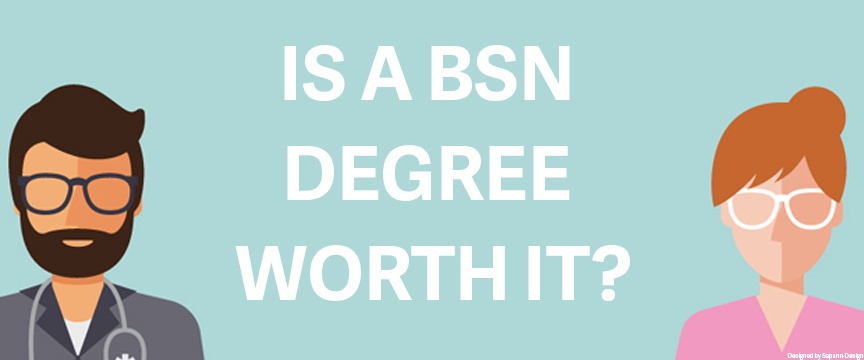
#1 Healthcare is Changing
In the last decade there has been a transition in most healthcare institutions from reactive to preventive care and the treatment of chronic diseases. This requires nurses to go beyond clinical skills.
More and more healthcare institutions are seeking nurses with a wider set of skills, such as leadership, research, and evidence-based practice with the purpose of providing the best care possible.
A BSN degree would prepare you to expand on the necessary skills to become a more adequate nurse for the needs of today’s healthcare.
#2 It May Become a Requirement
As healthcare becomes increasingly complex, many hospitals around the country are requiring for their nurses to earn at least a bachelor’s degree in nursing within a certain timeframe. Others simply prefer to hire nurses with BSN degrees in order to have better prepared staff.
Most hospitals are doing this to follow the guidelines proposed by the Institute of Medicine, which in 2010 recommended for all institutions to raise the minimum amount of BSN nurses to 80% by the year 2020.
Some states, like New York, have passed legislations requiring all nurses to have a BSN degree. New York’s BSN in 10 aims for all associate or diploma graduating nurses to obtain a BSN degree within 10 years of initial licensure.
#3 More Opportunities for Advancement
A bachelor’s degree is the first step in the right direction to advance your education. Most graduate nursing programs require you to have a bachelor’s degree. This is true as well as if you decide to move from basic clinical care into administrative, research, or teaching positions.
RN to BSN courses go beyond clinical knowledge and skills, expanding into areas such as leadership, ethics, information technology, and evidence-based practice.
Pay increases have been correlated directly to the educational level nurse holds. According to a Medscape report, nurses who completed an RN diploma or associate’s degree program earned an average of 8% less than nurses who completed a BSN degree
An online RN to BSN degree prepares you for increased responsibilities, career advancement, and a rewarding future within the evolving and caring field of nursing.
READ: 4 Specialized Roles for BSN Nurses
#4 There is (and There Will Be) a High Demand for Nurses
According to the Bureau of Labor Statistics, from 2016 to 2026 employment opportunities for nurses is projected to grow by 15%.
This is due to a high number of nurses expected to retire in the next decade, as well as many institutions emphasis on preventive care and the treatment of chronic diseases.
Given the recent shift in healthcare, BSN nurses are better suited to provide the type of care needed in today’s world.
Why MBU?
A BSN degree will equip you with the necessary skills and knowledge to thrive in the field of nursing and advance your career. At Missouri Baptist University we've created a 100% online RN to BSN program that can work around your shift schedule and busy lifestyle, allowing you to earn your degree in as few as 12 months.
MBU's RN to BSN degree includes courses in management, leadership, public health, nursing theory, and others that prepare you to move up into administrative, teaching, or research positions.

